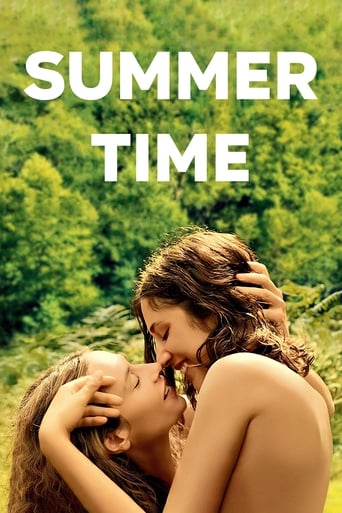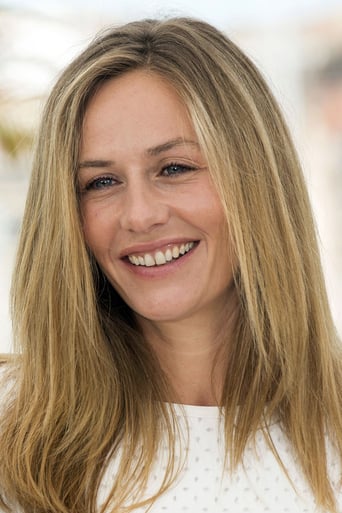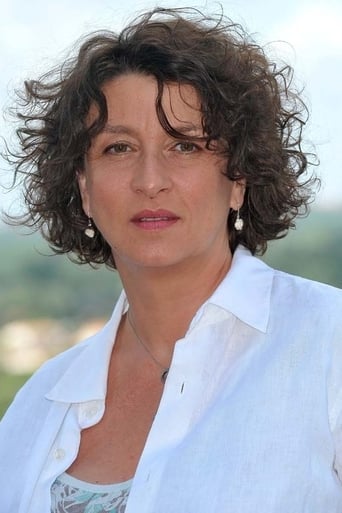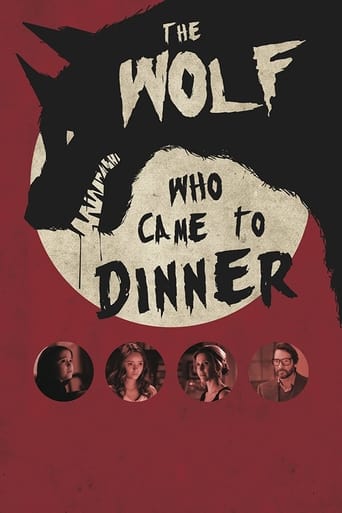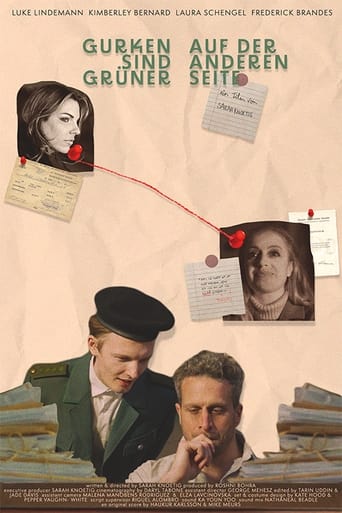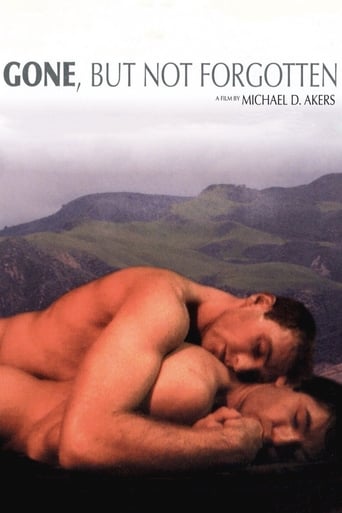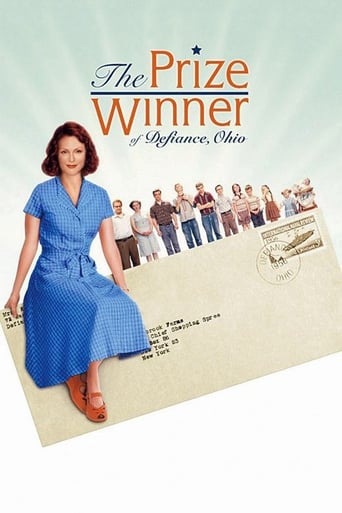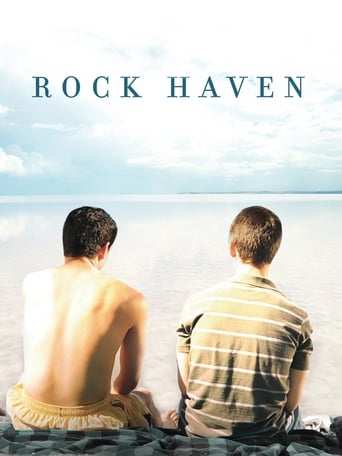Summertime (2016)
In 1971, a young woman moves from the French countryside to Paris and begins a passionate love affair with a feminist leader.
Watch Trailer
Cast


Similar titles
Reviews
Who payed the critics
Just perfect...
For all the hype it got I was expecting a lot more!
The thing I enjoyed most about the film is the fact that it doesn't shy away from being a super-sized-cliche;
'La Belle Saison' is set in 1971 when women were asserting their rights – as indeed a lot of folk were doing the same to a world that was not really ready. This is set against the lives of Delphine from a rural farming family. She escapes to Paris where she happens to cross paths with the fiery Carole (Cécile de France – 'Meserine').Then amidst the heady cocktail of feminism, liberation and radical politics they expressed themselves sexually – which of course was revolutionary. Yes they set about challenging the heterosexual orthodoxy - and found more than just a political statement in that they fell for each other.Now there is tons more to this inspiringly brilliant film. It is made in such a way that the characters come alive and are completely believable. All the performances are outstanding and the period detail is really good too. The hair and fashions as well as the vehicles are spot on – and some nice Janis Joplin songs on the soundtrack too. There is so much here to like that it is a very easy job to recommend.
to paraphrase the opening lullaby from Porgy and Bess. The folk opera written by George Gershwin, his brother Ira, and DuBose Heyward, author of the novel on which the show was based, opened on Broadway in 1935 but coincidentally an 'adult' play, The Children's Hour, by Lillian Hellman opened on Broadway and the 'adult' theme was the accusation (false) by a malicious schoolgirl that the two unmarried young women who owned the private school were engaged in an active lesbian relationship. 80 years later women are in the provinces are still not allowed to display sexual affection openly and that is the main thrust of this excellent film. For me, a heterosexual male the selling point was third-billed Noemie Lvovsky as the mother of one of the two female lovers followed by Cecile de France whom I had seen only in ingenue-type roles. The key to the film was the time it was set, 1971, when 'feminist' activists were making a noise world-wide but farmer's daughter Izia Higelin is in no position to express feelings about anything in Limousin so she moves to Paris and in nothing flat is heavily involved in women's lib and in nothing flatter she seduces a leader of the movement, Cecilde de France, who, as it happen, is in a relationship (they share a home) with a man. It's not, of course, much of a problem to maintain an all-female relationship in Paris but that would be too easy so when the farmer suffers a stroke his more than able-bodied daughter moves back to Limousin to run the farm. Cecile de France, now in way over her head, follows her and they continue the passionate affair clandestinely. This is a very lyrical film with gorgeous shots of the country around Limousin and farming activities like haymaking designed to enhance the unorthodox story. It ends in tears, natch, but it is a journey well worth sharing with the protagonists.
French actress, screenwriter and director Catherine Corsini's ninth feature film which she wrote with French screenwriter and director Laurette Polmanss, premiered in the Piazza Grande section at the 68th Locarno International Film Festival in 2015, was shot on locations in France and is a France-Belgium co-production which was produced by producer Elisabeth Perez. It tells the story about a French agrarian from the region of Limousin, Haute-Vienne in the commune of Limoges, France named Delphine who lives with her father named Maurice and her mother named Monique during the presidency of a French educator named Georges Pompidou (1911-1974), discovers that her friend is to marry and decides to go to Paris, France.Distinctly and subtly directed by French filmmaker Catherine Corsini, this quietly paced fictional tale which is narrated from multiple viewpoints, draws a perspicacious portrayal of a daughter who is as aware of her own identity as she is of how it is perceived by society and her transcending encounter with a French teacher named Carole whom is in agency for the advancement of women's rights. While notable for its atmospheric milieu depictions and distinct cinematography by cinematographer Jeanne Lapoirie and production design by production designer Anna Falguères, this narrative-driven story about the concealments of obscurantism and the importance of feminization of agriculture where a character asks: "Aren't there things you feel like you can't do because you're a woman?" and declares: "My body is not a car!" was made six centuries after the Black Death claimed the life of an English 14th century Princess, born in the Tower of London, named Joan of England (1348) and the Strasbourg massacre (1349), five centuries after a law called Ewiger Landfriede or Perpetual Public Peace was ratified in the Roman Empire, more than two centuries after the French Penal Code of (1791) and the inauguration of the autocratic monarchy called the First French Empire (1804-1815) where the motto was liberty, equality, fraternity or death, and more than a century after the Treaty of London (1839), a fourteen-year-old French daughter forenamed Bernadette reported the Marian Apparitions in Lourdes (1858), the French Women's Union (1871) was calling for equal salaries, the beatification of the child of a Frenchman named Jacques and a Frenchwoman named Isabelle and an English-French 19th century poet pen named Renée Vivien (1877-1909) who was sculpted by Rodin, painted by Colette, born in London, England and lived in Paris, France wrote: "Yield up all your chagrin to eternal delight. Exhale in profound cry of suffering blight. All those events of the past, so cruel and senseless. Leave them to death, to the distance and to silence " and ninety-five years after the decree of a decoration called the Medal of the French Family (1920).Made seventy-one years after a French Chevalier of the Legion of Honour named Cécile Brunschvicg (1877-1946) witnessed the introduction of Women's Suffrage in the French Republic (1944), seventy years after a French resistance fighter named Germaine Tilion (1907-2008) escaped from Ravensbrück, Germany, forty-seven years after the University of Limoges (1968) and someone had written "Vive De Gaulle" on the University of Lyon (1968), forty-four years after a French author named Françoise d'Eubonne (1920-2005) who befriended a French mystic named Violette Leduc founded a group (1971) who held their meetings at École Nationale Supérieure des Beaux-Arts (1648) in Paris, France and a Swiss filmmaker named Carole Roussopoulos (1945-2009) made a documentary regarding FHAR, thirty-eight years after a Canadian singer forenamed Pauline sang a song written in 1974 by a French singer forenamed Anne-Marie called "You have no name", thirty-seven years after a French physicist and chemist named Annie Sugier started the first refuge for battered women in Clichy, Hauts-de-Seine, France, thirty-two years after the Court of Cassation (1790) in France changed an article in the French criminal code which made any intervention or operation, for no medical reason, on the external female reproductive organs a crime, fourteen-years after the About-Picard Law (2001), twelve years after a street in Paris, France was named Place de Olympe-de-Gouges (2003), nine years after a bridge in Paris, France was named Passerelle Simone-de-Beauvoir (2006), five years after an English songwriter in a song called "Cosmic Love" (2010) at the Bataclan theatre, Boulevard Voltaire, sang: " in this twilight so darkness I became " a year after a Spanish-French civil servant named Anne Hidalgo became the first woman Major of Paris, Île-de-France, the same year as Transport for London made a video called "Report it to stop it" (2015), the Paris Métro a video called "Stop - It's enough" (2015) and a nineteen-year-old sister from the city of seven mountains named Aurora held a concert in Paris, France, this Sapphic interplay depicts some interrelated studies of character and contains a great and timely score by composer Grégoire Hetzel.This gracefully romantic love-story which is set in France in the early 1970s the same year as a French citizen sealed a wire between the two towers of Notre-Dame and during the conception of the French women's liberation movement, and where the internal consummation of a human connexion rests on a being's preoccupation with other peoples' views, is impelled and reinforced by its cogent narrative structure, substantial character development, rhythmic continuity, comment by Delphine: " I've often thought of you while following the struggle. It's amazing what you've accomplished ..." and the existing acting performances by Belgian actress Cécile de France and French singer and actress Izïa Higelin. A sustainable narrative feature.
When you watch this feature, you think of LA VIE D'ADELE, speaking of the same scheme, female homosexuality. This film is gripping at the most, telling us the story of two Young women who met in Paris during the early seventies, when the feminist movements spread all over the world. And don't forget that two years ago, in France, the marriage for everyone laws were on every lip. So it remains in the line of actuality. Cecile de France is terrific here, so is Noémie Chowsky, as the mother of one of the two women in love for each other. A human drama that grabs you from the start to the end. I highly recommend it. Catherine Corsini made here an outstanding piece of work.

